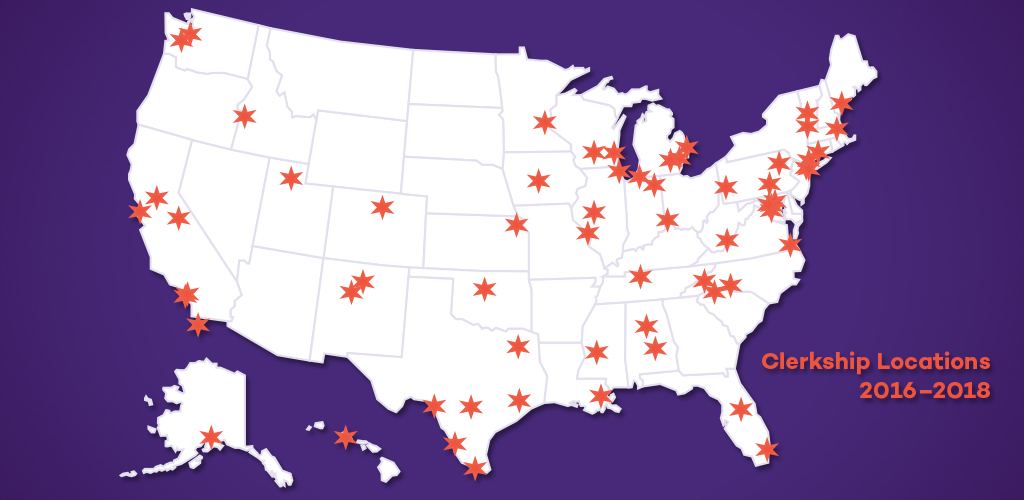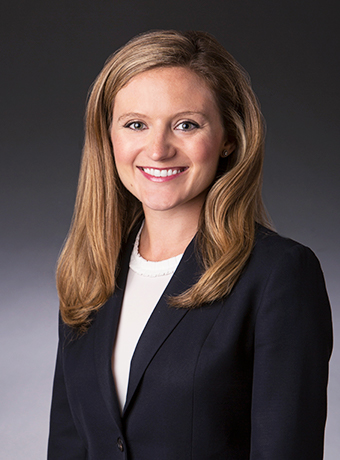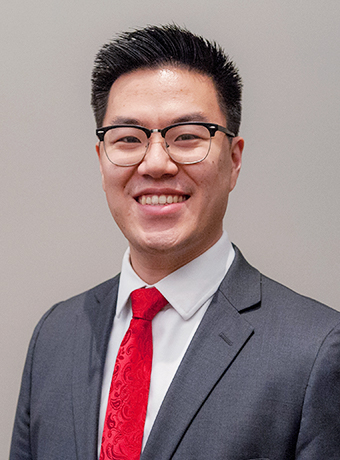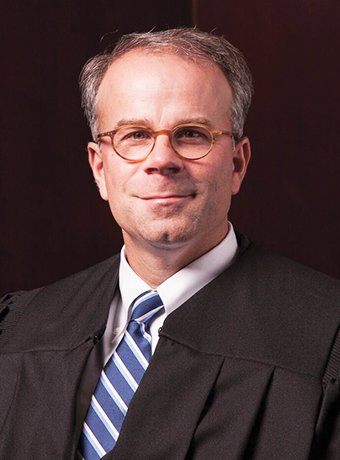Clerkships Deliver Insights, Spark Success
Long considered a prestigious opportunity for recent law school graduates, judicial clerkships provide invaluable insights into what judges do day-to-day, and how they think, write and otherwise ...
11.01.2018
After Law School Alumni Clerkships
In 2018, a diverse group of 49 Northwestern Law alumni secured clerkships with state, federal, and even international courts, continuing the school’s recent clerkship successes. In addition, 22 judges hired Northwestern Law clerks for the first time. “That’s pretty significant and shows that Northwestern applicants are appealing to a broad array of judges,” says Janet Siegel Brown, director of judicial clerkships and a lecturer at Northwestern Law. “We are constantly creating new relationships and pipelines for clerkship opportunities.”
In the past three years, under Brown’s leadership, Northwestern Law alumni have clerked in 34 states, Washington D.C., Puerto Rico, Israel, and Palau. Brown emphasizes that with the creation of her position in 2014, Northwestern is devoting extensive resources to helping students navigate the increasingly competitive clerkship application process. She helps applicants manage their application materials, prepare for interviews, and connect with the right opportunities. According to Brown, Northwestern Law is one of the only law schools that offers these services for alumni as well as current students. “Our graduates find that once they’ve completed a clerkship, all kinds of opportunities are open to them that wouldn’t be otherwise,” she says, noting that clerking is a great way to both start a career or make a mid-career shift.
Our graduates find that once they’ve completed a clerkship, all kinds of opportunities are open to them that wouldn’t be otherwise

Leading the 2018 clerkship pack is Julie Karaba Siegal (BS ’10, JD ’14) who began a clerkship at the Supreme Court for Chief Justice John Roberts in July. “This was definitely something I dreamt of in law school,” Siegal says.
Throughout her time at Northwestern Law, Siegal crafted an educational experience that would help her achieve that dream, including taking the Bluhm Legal Clinic’s Supreme Court Clinic in the Appellate Advocacy Center, which confirmed her interest in the Court. She participated in Julius H. Miner Moot Court and served as senior articles editor for the Northwestern University Law Review. Her senior research project with Martin Redish, Louis and Harriet Ancel Professor of Law and Public Policy, was published in the Boston University Law Review and recognized by Reuters as one of the most important procedure articles of 2015.
“Doing the senior research program with Professor Redish was helpful preparation for clerking. Meeting with him one-on-one to present my work and defend my ideas was similar to a lot of interactions between clerk and judge. It helped increase my confidence in that kind of situation.”
After graduating in 2014, Siegal clerked for Judge Gary Feinerman of the U.S. District Court for the Northern District of Illinois, then for Judge Brett Kavanaugh of the U.S. Court of Appeals for the DC Circuit, who was appointed and confirmed to the Supreme Court this year. “I’ve been fortunate to have bosses who are invested in being mentors and teachers to their clerks,” she says. “I feel really, really lucky that they were interested in us, and invested in our learning, our success, and in our long-term careers.”
Aside from building relationships with the judges, Siegal calls working with her fellow clerks the most valuable part of the clerkship experience thus far. “It is enriching to meet fellow young lawyers from other schools and backgrounds, and to take on this intense experience together, learning from and challenging each other,” she says. “You develop a camaraderie and friendship with them that is quite unlike other professional environments.”
In 2016, after leaving Kavanaugh’s chambers, Siegal participated in the prestigious Bristow Fellowship program in the Office of the U.S. Solicitor General, helping prepare the federal government’s cases before the Supreme Court. In 2017, she joined the D.C. office of Sidley Austin, where she worked until beginning her clerkship for Chief Justice Roberts.

Of course, not everyone who ends up in a clerkship heads there straight from law school. “I took an unconventional path into a federal clerkship,” says L. Raymond Sun (JD ’11) of his winding journey from a firm in Vermont, to the Superior Court of Guam, to legal aid in Australia, to the Superior Court of Vermont, to the Second Circuit, to the District Court for the District of Vermont. “I didn’t know clerkships were a thing coming into law school, but as soon as I realized they were, I knew it was something I wanted to do — to sort of sit under a learning tree for a year with a wise old wizard of law who could teach me a great deal.”
Sun was in his first year out of law school, working in his home state of Vermont, when he applied for and received a clerkship opportunity in Guam. “It was the middle of February in Vermont, it was super cold, and I was seeing these pictures of white coral sand beaches and fresh coconuts and mangoes,” Sun says. “I would have taken the job anyway, but that was certainly an added draw.”
Sun worked for Judge Arthur R. Barcinas of the Superior Court of Guam and found the tiny island territory offered enormous opportunity. “Guam is a ‘wild west’ jurisdiction without much binding precedent,” he says. “I felt really blessed to have the opportunity to be on the frontier and to look at a lot of legal issues for the first time, as well as Guam-specific issues, like the Ancestral Lands Commission, which is trying to trace back ancestral title to lands that were taken by eminent domain.”
After a year in Guam, and some time assisting legal aid and criminal defense organizations in his wife’s home country of Australia, Sun secured a clerkship with Vermont’s Superior Court. There he developed a good relationship with Judge Bill Cohen, who recommended him to his former law partner, Judge Peter Hall of the U.S. Court of Appeals for the Second Circuit.
“Law students or early career lawyers who are interested in clerking and want to get that federal clerkship merit badge should know that one way to get there is to clerk in a superior court or some other lower court and try to impress the judges that you’re working with there,” Sun says. “I feel like that may be an underappreciated and underutilized path into federal clerkships.”
Sun followed up his clerkship for Judge Hall with another clerkship, this time for Judge Geoffrey Crawford of the District of Vermont. In June, he was chosen to be a Supreme Court Fellow for the 2018-19 term. The highly competitive fellowship program selects four fellows each year to work for one of four federal judiciary agencies. Sun is assigned to the United States Sentencing Commission. The program is great for “people who are coming out of a federal clerkship and want the experience of seeing judicial decision making from another perspective,” Sun says.
Northwestern Law students are especially well-positioned to succeed in and benefit from clerkships, Brown notes. “We’re seeing how much judges value the skills and expertise that come from both a high-quality educational experience but also practical experience,” she says. “One thing that makes Northwestern students uniquely qualified is that they tend to come here with experience that prepares them well for the challenges of the workplace and then they get all of this hands-on experience through our clinical programs, extensive internship offerings, and simulation-based or practical courses. They show up at a clerkship really well prepared and ready to hit the ground running.”

Northwestern’s strong interdisciplinary focus probably doesn’t hurt either. “I am looking for clerks with strong academic records and diverse backgrounds,” says Judge Michael Scudder (JD ’98) of the Seventh Circuit Court of Appeals, who was nominated by President Trump and confirmed by the Senate earlier this year. “I want to assemble a group of great team players who are going to think through difficult issues from multiple perspectives.”
When he was just out of law school, Scudder clerked for Judge Paul Niemeyer of the Fourth Circuit and Supreme Court Justice Anthony Kennedy, and he knows how worthwhile the experience can be. “Clerking is a valuable form of public service that provides young lawyers with the opportunity to sharpen their skills and see how courts and judges decide cases, and the judge-law clerk relationship is a special one that most often leads to lifelong friendships and invaluable mentoring.”
Scudder has served as an adjunct professor at the Law School and frequently collaborated with the Bluhm Legal Clinic on pro bono cases as a partner at Skadden, Arps, Slate, Meagher & Flom. He has hired two Northwestern Law alumni — Abigail Parr (JD ’14) and Bradley Tucker (JD ’17) — as clerks for the current term.
Despite their different paths to clerkships, Siegal and Sun both recognize the importance of their Northwestern Law education and the Northwestern Law community in preparing them to succeed. “I was one of the younger people in my law school class, and I feel like being around people with more work experience was a huge benefit to me,” Sun says. “You learn a lot in those first few years of your career and I could absorb a little bit of that professional wisdom by osmosis. I always had the feeling that everyone around me wanted me to succeed and that was a huge help. From my professors to the administration to classmates, just everyone.”
To anyone considering a clerkship, Siegal is unequivocal. “If you’re thinking about a clerkship at all you should go for it,” Siegal says. “It’s a wonderful experience and offers a chance to hone your skills and continue to develop the way that you approach the law and think about problems. Clerking offers a unique behind-the-scenes look at how decisions are made as well as a chance to develop invaluable relationships.”
Long considered a prestigious opportunity for recent law school graduates, judicial clerkships provide invaluable insights into what judges do day-to-day, and how they think, write and otherwise ...
Northwestern Pritzker School of Law is pleased to announce the appointment of four new Law Board members. The Law Board is dedicated to advancing Northwestern Pritzker Law and supporting its ...
Northwestern Pritzker Law alumna Christine M. Evans (JD ’03, LLM-IHR ’11) has received the John Paul Stevens Foundation’s inaugural Justice John Paul Stevens Distinguished Alumni Fellow Award. ...